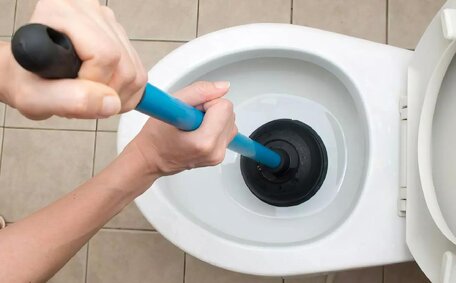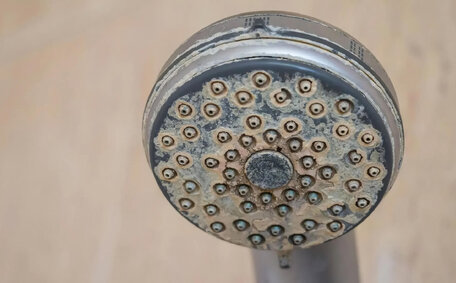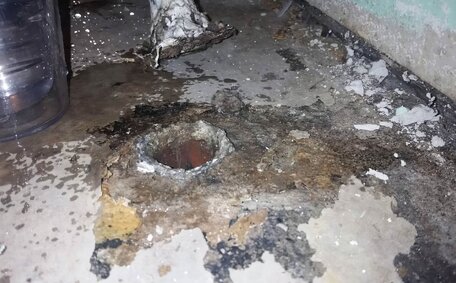Understanding Gas Appliance Safety
Proper maintenance and safe operation of your heater and gas appliances are pivotal to preventing dangerous situations in your home.
This page aims to provide homeowners with clear insights into potential risks, safety checks, recognising warning signs, and protecting your home through preventative maintenance.
We’ll cover the dangers of gas leaks, carbon monoxide detectors, tips for servicing appliances, and how to detect your home gas, also identifying when it’s essential to call in professionals. Our goal is to ensure you have the knowledge to detect a gas leak in your appliances before they become dangerous.
Warning Signs of Gas Appliance Malfunctions
When you use appliances like openflued gas heaters, they can provide many benefits when functioning properly, but malfunctions pose serious dangers that require immediate attention. Being able to identify the warning signs helps detect gas leak your appliances may exhibit, allowing you to take prompt action and avoid potential disaster.
Key indicators of gas appliance issues include:
- Unusual odours - should you sense a gas smell remember Natural gas is lighter than air and odourless, prompting the addition of an artificial scent of rotten eggs to enable leak detection. If you notice this smell, it could be your stove leaking gas that signals an immediate concern.
- Physical symptoms - Headaches, dizziness, nausea and fatigue can result from carbon monoxide CO exposure because of issues gas appliance might have.
- Soot buildup - The presence of a sooty residue can be a sign that gases are not combusting completely.
- Yellow or orange flames - Appliance flames should burn blue. Discoloured flames signal insufficient ventilation.
- Pilot lights that frequently blow out - This points to an underlying issue with the gas line or appliance controls.
- High gas bills - Spikes in gas usage without a clear reason might signal that it’s time to have your gas heater serviced, hinting at possible leaks.
- Hissing or whistling sounds - What do gas leak sounds include? Listen for hissing near appliances as it can indicate escaping gas.
If you notice any warning signs, promptly turn off your gas, inspect your gas cylinder, and contact a licensed gas fitter. For flued gas appliances, ventilate the area by opening doors and windows before vacating the premises. Stay alert to signs of problems so you can address them promptly.
Call a repair technician to inspect and assess how detect gas leak issues or malfunctions before using appliances again.
Faulty Burners or Igniters
Faulty burners or igniters can be indicative of wider issues concerning your gas systems. Some common causes of burner or igniter problems include:
- Blockages - Accumulation of dirt, grease, or debris on a gas burner can inhibit proper ignition. Without regular cleaning, the burner ports where gas exits can become blocked, posing a hazard.
- Wear and tear - Over time, components such as the heat exchanger in burner assemblies and igniters can fail. Things like fuel injectors, thermocouples, electrode tips and more can wear out.
- Moisture damage - Exposure to liquids or humidity can corrode the electronic ignition system.
- Improper gas pressure - If gas supply pressure is too high or too low, burners may not light consistently.
If you notice burner or ignition issues, don’t attempt to repair the appliance yourself. Ensure regular professional maintenance and periodically check gas burners and igniters for durability against daily use.
Turn off your gas immediately and contact a licensed gas professional. They can diagnose and properly fix the problem. Frequent burner problems are a sign your appliance may need replacing.
The Importance of Regular Maintenance
Regular upkeep is essential to guarantee your gas appliances remain energy safe, functioning both safely and efficiently within your property. Gas industry experts recommend getting your gas heater serviced annually, or every two years at the least, depending on usage frequency. Proactive maintenance helps nip any potential gas appliance issues in the bud before they turn hazardous.
A technician will perform a thorough evaluation of the appliance, considering its particular gas needs during servicing. They will check for any signs of wear, corrosion, damage, or leaks that could compromise safety. All components will be examined to ensure product safety, good working order, and proper functioning as intended.
A crucial maintenance task involves ensuring gas regulators function properly. Regulators control and monitor the gas pressure being supplied to the appliance - this needs to be at precise specifications for optimal performance. Over time, regulators can fail or allow too much or too little gas to flow.
During service, technicians will inspect gas regulators, your gas meter, clean parts, and adjust components where necessary. For example, they may clean out blocked burner ports so gas can flow freely. Maintenance helps appliance parts withstand years of continuous use.
Considering that a significant portion of homes use natural gas, it’s wise to be proactive rather than waiting for warning signs. Take initiative to find out more about your appliances before warning signs of a gas leak appear.
DIY Gas Leak Detection
- Conduct a visual inspection of all gas lines and connections. Look for any signs of damage, wear or corrosion. Watch for dirt buildup which can indicate escaping gas.
- Use a soapy water solution to check for leaks. Apply it with a brush to joints, valves, fittings and other connection points. If bubbles form, it indicates escaping gas.
- Invest in gas leak detectors for your home. These battery-powered alarms will sound if they detect natural gas or methane in the air.
- Sniff near appliances and lines to try to detect the added rotten egg scent in gas.
- Monitor your stove’s flame; yellow, orange, or irregular flame shapes can signify how to detect a gas leak, indicating insufficient gas flow.
DIY leak checks can reveal undetected gas leaks, allowing for early intervention. Evacuate the area immediately and contact a professional if there are signs of a gas leak—if undetected, it poses a severe risk. Avoid attempting repairs on your own when you suspect a gas leak in appliances.
Conduct a visual inspection of all gas lines and connections. Look for any signs of damage, wear or corrosion. Watch for dirt buildup which can indicate escaping gas.Use a soapy water solution to check for leaks. Apply it with a brush to joints, valves, fittings and other connection points. If bubbles form, it indicates escaping gas.Invest in gas leak detectors for your home. These battery-powered alarms will sound if they detect natural gas or methane in the air.Sniff near appliances and lines to try to detect the added rotten egg scent in gas.When to Call a Professional
There are certain scenarios when it is critical to call in a professional gas fitter or plumber to inspect your appliances and gas lines:
- You smell gas or suspect gas leak - Never try to locate or repair a gas leak yourself. Evacuate and call for immediate emergency assistance.
- Appliances are malfunctioning - If burners on your unflued gas heater aren’t lighting properly or you see discoloured flames, call a licensed gasfitter for diagnostics and repairs.
- Routine maintenance is due - Gas appliances should be serviced by a licensed gas fitter at least once yearly.
- You need installations or major repairs - Only qualified professionals should work on gas systems and handle any gas-related tasks.
- Carbon monoxide detectors go off - This indicates CO buildup from improper combustion. Professionals can find and fix the source.
- There are signs of inadequate ventilation - Blocked vents, sooty deposits and excessive moisture near appliances calls for an expert assessment.
- Moving into a new home - An inspection by a gas fitter checks that all appliances are up to code and operating safely.
Our proficient gas fitters can manage any gas leak issues and perform maintenance and repairs, ensuring safety in your commercial kitchen. If you have concerns about a gas leak in your commercial kitchen, don’t hesitate to contact us; clicking our contact link opens a new window for assistance.
We offer professional gas fitting services across Emu Plains and the Sydney area.
Understanding the Risks of Gas Leaks
Extra caution is necessary with indoor gas usage due to the high flammability of natural gas. Toxic fumes from burning natural gas can also quickly overwhelm occupants. According to the U.S.
If ignited, even a small leak can cause devastating fires or explosions that put entire buildings at risk. Per the Pipeline and Hazardous Materials Safety Administration, from 2010 to 2020, gas leaks and pipeline damage resulted in 47 fatalities, 172 injuries, and property damage exceeding $656 million.
Fire risks and inhaling combustion products from an open flued gas appliance can lead to carbon monoxide poisoning. When natural gas is incompletely burned due to conditions like negative pressure, it produces combustion products like carbon monoxide which reduces oxygen supply in the blood stream. Safety alerts should be heeded as at moderate levels, carbon monoxide poisoning causes headaches, dizziness, weakness, upset stomach, vomiting, chest pain and confusion. At high levels, carbon monoxide can cause unconsciousness, brain damage, and death quickly, so immediate action is essential.
Infants, pregnant women, the elderly and those with respiratory conditions are most vulnerable to the effects of carbon monoxide. However, prolonged exposure to gas leaks can be hazardous to anyone. Immediately evacuate and get medical help if you suspect carbon monoxide poisoning.
It’s imperative not to overlook gas leaks but instead to immediately contact your gas supplier. If you detect any signs of a leak, take emergency action by evacuating the building, calling 911, alerting your gas provider, and shutting off any appliances. Gas leaks can quickly escalate into more tragic incidents if not handled promptly and professionally.
Carbon Monoxide Poisoning
Carbon monoxide is an extremely dangerous gas, and any gas leak can be fatal if inhaled. It is colourless, odourless and tasteless, making it impossible to detect with our senses.
CO is produced when fuels such as natural gas, oil, lp gas, kerosene, coal, or wood do not burn fully. Monitoring gas heaters, water heaters, ovens, and fireplaces is essential, as they can emit CO if they’re malfunctioning, lack ventilation, or if regular maintenance is not upheld.
CO exposure interferes with oxygen absorption in the bloodstream, making prevention of gas exposure critical.
At lower concentrations it causes symptoms like headaches, dizziness, weakness, nausea and confusion. But at higher levels it rapidly leads to unconsciousness, coma or death. Each year over 400 Americans die from unintentional CO poisoning.
This underscores the importance of CO alarms in homes with gas appliances. Such devices are our picks for the best line of defence, alerting homeowners to dangerous CO buildup in time to take action. Install them on each level of your home and ensure they’re tested monthly.
Proper ventilation is key, therefore it’s wise to contact your gas provider for advice to prevent CO poisoning. Recognising the signs of CO poisoning and taking preventative measures can save lives.
Safety Tips for Gas Appliance Use
- Have appliances installed properly by qualified technicians as per codes.
- Schedule annual maintenance checks by licenced professionals.
- Look for warning signs like odd smells, pilot lights going out, or sooty residue.
- Install carbon monoxide and gas detectors for alerts to dangerous leaks.
- Keep appliance areas well-ventilated and clear of obstructions.
- Learn the location of gas shut-off valves and how to turn off supply.
- If you suspect a leak, evacuate immediately and call emergency services.
- Never ignore symptoms like headaches or nausea which can indicate CO poisoning.
- Replace older appliances that may lack modern safety features.
- Discuss safe use of appliances with all family members.
Remain vigilant about gas safety to prevent appliances from compromising your home and well-being. Contact professionals promptly for any installation, maintenance or repair needs.
Have appliances installed properly by qualified technicians as per codes.Schedule annual maintenance checks by licenced professionals.Look for warning signs like odd smells, pilot lights going out, or sooty residue.Install carbon monoxide and gas detectors for alerts to dangerous leaks.Keep appliance areas well-ventilated and clear of obstructions.Learn the location of gas shut-off valves and how to turn off supply.If you suspect a leak, evacuate immediately and call emergency services.Never ignore symptoms like headaches or nausea which can indicate CO poisoning.Replace older appliances that may lack modern safety features.





